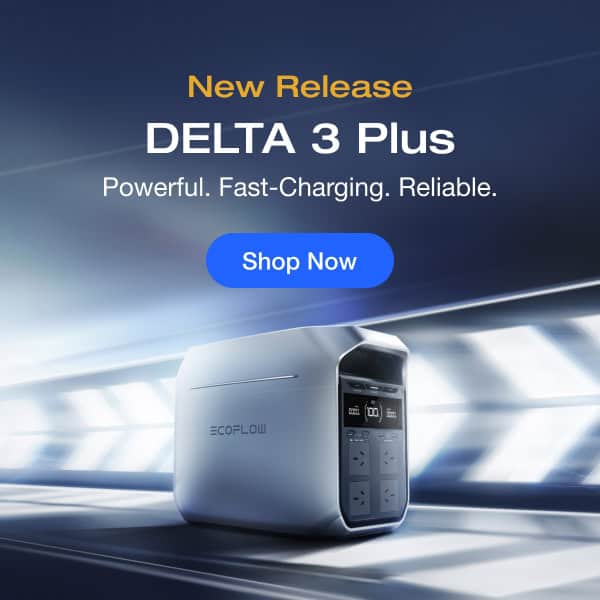Table of Contents
When it comes to powering your devices, vehicles, or off-grid adventures, the type of battery you choose can make all the difference. The debate of lithium battery vs AGM is not new, but the decision ultimately depends on your needs and priorities. Are you after reliability? Longevity? Lightweight performance? In this article, we will break it all down—explaining what each type of battery offers, its pros and cons, and which might be the better fit for you. Let us dive in!
What Is AGM Battery?
In this AGM battery vs lithium comparison, first let us talk about AGM batteries. AGM stands for Absorbed Glass Mat, a type of lead-acid battery that is sealed and designed for better performance than traditional flooded lead-acid batteries. The “glass mat” part refers to a thin fiberglass mat inside the battery that absorbs the electrolyte solution, preventing leaks and making the battery maintenance-free. AGM batteries are widely used in cars, boats, and even backup power systems. They are reliable, versatile, and have been a trusted power source for decades.
Pros and Cons of AGM Battery
Before you decide if AGM is the right choice in this AGM vs lithium battery battle, let us weigh the good and the not-so-good.
Pros of AGM Battery
- Maintenance-free: Unlike traditional lead-acid batteries, AGM batteries do not require regular watering or electrolyte refills. Just install it and forget about it.
- Affordable: AGM batteries are typically cheaper than lithium batteries, making them an attractive option for budget-conscious buyers.
- Reliable performance: They perform well in cold temperatures, making them ideal for vehicles or environments where winters are harsh.
- Durable: AGM batteries handle vibrations well, which is why they are often used in off-road vehicles and boats.
- No leaks: Thanks to the sealed design, there is no risk of acid spilling out, even if the battery is damaged.
Cons of AGM Battery
- Shorter lifespan: AGM batteries generally last much less than lithium batteries.
- Heavier: These batteries are bulky and heavy, which can be a downside for applications where weight matters.
- Limited usable capacity: Lead-acid batteries have limited usable capacity (only about 50% of their rated capacity).
- Lower energy density: Compared to lithium, AGM batteries have a lower energy storage capacity for their size.
What Is Lithium Battery?
Now let us switch gears to lithium batteries. These batteries use lithium ions to store energy, which gives them higher energy density, lighter weight, and longer lifespans compared to AGM batteries. You will find lithium batteries in everything from smartphones and laptops to RVs and solar power systems. They have revolutionized energy storage by offering unmatched efficiency and performance.
A great example of lithium technology in action is the EcoFlow 12V 100Ah Lithium Trolling Motor Battery, featuring EV-grade LFP cells with over 6,000 cycles for exceptional longevity and consistent performance. With its lightweight construction and ability to handle deep discharges, it is ideal for reliable trolling motor power. Consider upgrading to the EcoFlow battery for a dependable and long-lasting energy solution.

Pros and Cons of Lithium Battery
Let us take a closer look at why lithium batteries are worth considering—and where they might fall short.
Pros of Lithium Battery
- Lightweight and compact: Lithium batteries are significantly lighter than AGM batteries, making them ideal for portable and space-constrained applications.
- Long lifespan: Lithium batteries have an impressive battery lifespan, lasting 10+ years or 3,000–5,000+ cycles, far outpacing AGM batteries.
- High energy density: Lithium batteries store more energy for their size, which means more power in a smaller package.
- Deep discharge capabilities: You can safely discharge lithium batteries up to 80–100% without harming their lifespan.
- Fast charging: Lithium batteries recharge much quicker than AGM batteries, reducing downtime.
- Eco-friendly: Longer lifespans and fewer toxic materials make lithium batteries a greener choice.
Cons of Lithium Battery
- Higher initial cost: The upfront cost of lithium batteries is higher, although their longer lifespan offsets this over time.
- Temperature sensitivity: While they perform well in warm climates, lithium batteries can struggle in extremely cold environments without a built-in heating system.
- Complex Charging Requirements: Lithium batteries require specialized chargers and monitoring systems to ensure safe operation.
Differences Between AGM and Lithium Battery
Now that we have covered the basics of AGM and lithium batteries, let us directly compare the two so you can make an informed decision.
| Feature | AGM Battery | Lithium Battery |
| Weight | Heavy | Lightweight |
| Lifespan | 3–5 years | 10+ years |
| Depth of Discharge | 50% | 80–100% |
| Energy Density | Lower | Higher |
| Charging Time | Slower | Faster |
| Cost | Lower upfront cost | Higher upfront cost, long-term value |
| Maintenance | Maintenance-free | Maintenance-free |
| Best For | Budget-conscious buyers, cold climates | Long-term use, portability, high energy needs |
In summary, AGM batteries are great for those on a budget or who need reliable performance in cold conditions. On the other hand, lithium batteries are perfect for people who want long-lasting, lightweight, and powerful energy solutions.
Conclusion
When comparing lithium battery vs AGM, the choice ultimately depends on your priorities. AGM batteries are affordable and reliable, making them great for short-term or budget-friendly applications. However, if you’re looking for superior performance, longevity, and energy efficiency, lithium batteries are the way to go. So, which battery fits your needs? Whether you stick with AGM or upgrade to lithium, the right choice will keep you powered and ready for anything!
FAQ
Can I charge an AGM battery with a lithium charger?
No, you should not charge an AGM battery with a lithium charger. Lithium chargers are specifically designed to work with the charging profile of lithium batteries, which differs significantly from AGM batteries. AGM batteries require lower voltage and a distinct charging cycle to prevent overcharging or damage. Always use a charger compatible with the battery type to ensure safety and maintain battery health. Check your charger specifications before use.
Can I replace my AGM battery with a lithium battery?
Yes, you can replace your AGM battery with a lithium battery. However, ensure your Battery Management System, solar charger, and solar regulator are compatible with lithium batteries before making the switch.
What is 100ah lithium equivalent in AGM?
A 100Ah lithium battery, rated at 12.8V, provides 1280Wh of energy, while a 100Ah AGM battery, rated at 12V, provides 1200Wh. So, a 100Ah lithium battery offers slightly more capacity in terms of energy storage compared to a 100Ah AGM battery.


